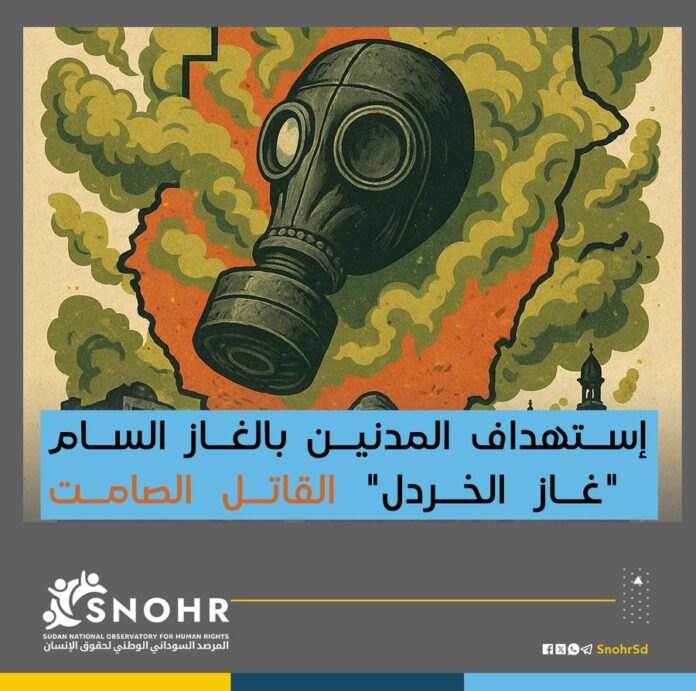Sudan National Observatory for Human Rights Targeting Civilians with Toxic Gas – “Mustard Gas”
Mustard Gas: The Silent Killer Mustard gas is an invisible weapon — unseen to the naked eye, but devastating to the human body in silence. It burns the skin to the point of disfigurement, destroys the lungs and eyes, penetrates cells, and disrupts DNA. It attacks the mucous membranes, causing severe inflammation, and leaves lifelong effects that cannot be erased. According to a toxicology expert: > “What is happening in Khartoum is an unprecedented humanitarian and health catastrophe. These areas will be uninhabitable for years to come.” Mustard gas does not kill instantly — it leaves victims in agony for hours, and sometimes days. It is a psychological weapon as much as a physical one — spreading fear before claiming lives. A Weapon With a Bloody History Mustard gas is not new to war: First used in 1917 during World War I Then in the Iran-Iraq War during the 1980s Later in the Syrian conflict over the past decade And now, tragically, it reappears in Sudan Voices from the Heart of the Tragedy A witness from South Khartoum recounts: > “We couldn’t breathe… children collapsed in front of us… homes turned into graves.” A woman from Wad Nubawi, Omdurman says: > “The water we drink has become deadly… its color changed, its smell is suffocating… even our trees have died.” In Khartoum North (Bahri), particularly around the central station and neighborhoods along Al-Inqaz Street, barrels mixed with toxic gases rained down on homes and markets. Hundreds perished in moments, and chemical contamination filled the air. According to widely shared images on social media, even the plants in neighborhoods like Jabra, around the armored corps, and Al-Shajara did not survive. Targeting Civilians with Toxic Gas Is a Documented War Crime The use of chemical weapons like mustard gas against civilians is a documented war crime, and mustard gas is internationally banned under the Chemical Weapons Convention (CWC). Such acts represent a grave violation of international humanitarian law, and specifically breach the provisions of the CWC. This violation is prohibited under international law and constitutes a war crime one that requires legal accountability before international courts.


